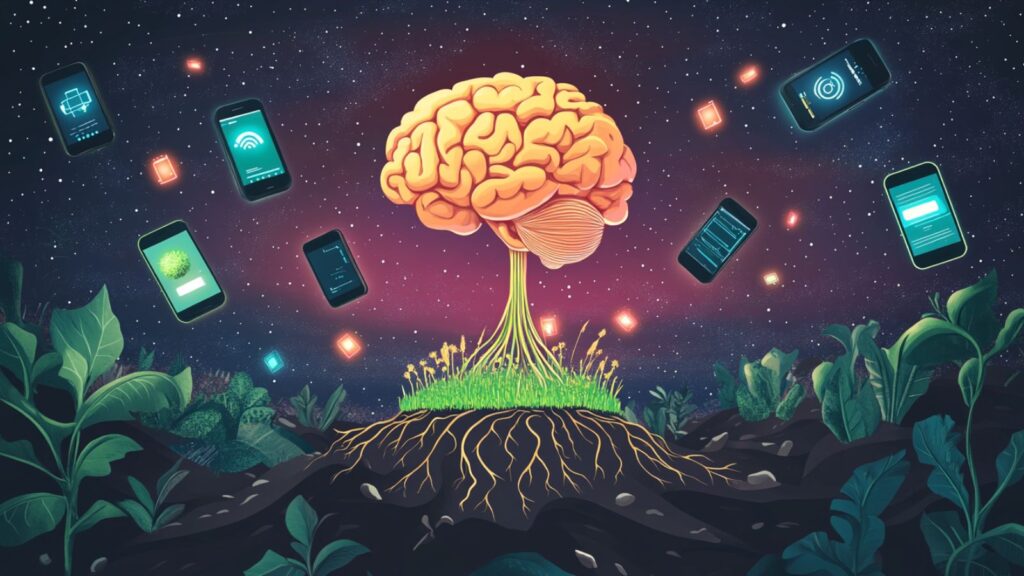When I first sat down to read Matt Roberson's Impotent, I felt dismayed. Was I really about to sit down and read a piece of important new fiction? My first thought about new, post-modern fiction books goes something like this: I do not believe in you.
In truth, I have become cynical about the ability of post-modern fiction to do anything but helplessly run circles around itself in an ego-stroking and cynically self-encased hall of smoke and mirrors. My cynicism is ironic, right? But much to my surprise, I was deeply moved by Impotent.
Author Michael Martone writes: "As the fictions in Impotent accumulate, the book graphically decays, morphs, becomes ruined in front of your eyes. Matthew Roberson's work is, in a way, a rewriting of Frankenstein but Impotent is the monster itself — patched up, stitched, sewn together. A hybrid. A mash-up. The book reanimated. Sublime. And it's alive!"
Martone couldn't be more right. The reading experience affected me so deeply I decided I would interview Matt Roberson and strike up a conversation about the capacity for literature to be medicinal. Considering the book's smart probing and three dimensional presentation of consumer medication culture, the subject felt appropriate.
Let's start with an introduction to your book. What is your novel, Impotent, about? Give us a brief synopsis.
The book was originally subtitled, "On Medication and Family," and I think that describes its interests. It looks at characters in their late twenties and thirties and forties and their struggles to have families or do well by their families or, in some cases, survive their families (though, the last, in a mostly humorous way; several of the characters, for example, come unprepared for the challenges of babies). All the characters, also, are on medications, because, well — aren't we all — and the book uses the meds as a lens through which to see them. In other words, instead of being organized by plot, the book takes its focus from the meds the characters take (not to say there's not plot). So, you get to know the characters L. and I. through the fact that L. takes Ambien and Tylenol and so on, and I. takes Yasmin, because she's not quite ready, yet, to have kids. Later, you meet S., who takes all sorts of herbal supplements, and we get to know him via the start of his day, which involves a handful of pills that includes Gingko Biloba and Ginseng, and so on. All the characters have abbreviations for names, and the abbreviations come from their designations on medical forms. I. for insured. L. for Last Name, First Name, Middle Initial, and so on.
Does your book take a moral position on consumer medication culture?
Not so much, because I didn't want to force its hand right out of the gate. Rather, it takes as its premise that we all knock back one or two or even a half dozen pills a day, and it goes from there, to investigate the characters' lives through this common and defining characteristic.
Of course, along the way it wonders a lot about exactly why the characters take the pills they take, and why doctors prescribe them, and if the meds help or hurt or do nothing at all, but I hope it does so in a way that focuses first on how meds have been woven into our lives, and how, in some ways, they define our lives. Or maybe the better way to say that last part — the book explores how we use meds to help make sense of ourselves and our problems. And certain, inevitable indictments of meds and the medical industry and the pharmaceutical giants comes along the way, as readers come to their own conclusions.
The book is particularly brilliant in its structure, movement, and quirky presentation. It's not a "normal" read. Would you say your book falls into the "post-modern" genre?
I'm not going to immediately jump to the defensive claim made by so many writers and thinkers that "there's no way to define postmodernism," or the self-conscious claim that "no self-respecting writer would call him or herself 'postmodern.'" Instead, yes, this book is postmodern, if we think postmodernism's about mixing up form and genre. The book is formally experimental, including footnotes and pictures and lists and diagrams and so on. And, in terms of mixing genre, it includes (a lot in footnotes) non-fiction material about meds and stuff from the web (from bulletin board sites where people talk about their experiences with meds). And, I guess, I'd also say that the book's interested in representation — kind of wondering about how we come to understand the world around us, looking here at how our lives come filtered, in part, through the drugs in which we're invested. And, I guess, if that's what my book does, then I'm a postmodern writer. I like reading and writing fiction that works differently, non-linearly-associatively and accumulatively. (I think a lot of people distance themselves, too, from postmodernism, because it's got a reputation for being all about empty cleverness, and I've got no worries about that; I hope I successfully experiment with form and narrative without losing the elements of fiction — character and plot, in particular — that mean so much to us. And I've got some reviews to back me up — reviews that have appreciated that the book's got, as they say, "a lot of heart." Those comments mean a lot to me.
What distinguishes post-modern literature from other forms of literature?
You know, just those things above, plus a tendency towards metafiction — fiction that somehow examines its own status as fiction. Two things: postmodern literature's not new, by a long shot; it's been around since the beginning of fiction. Laurence Sterne wrote it, as did Melville, and so on. It's just that a lot more writers have been interested in it since the '60s, and so there's a kind of critical mass. And it's come a long way from the cutesy, "Hey, Mom, Look at me writing with no hands," stuff we sometimes got in the '60s. We had talents then like Robert Coover, and we now have very complicated and engaging and smart stuff from David Foster Wallace and Ben Marcus and really awesome collage fiction from the less well known team of Steve Tomasula and Stephen Farrell.
Can post-modern literature be subversive without having its own "modern" or "moral" agenda? Isn't post-modern literature just deliberately indeliberate, or immorally moral, and why?
Man, I'm loving this discussion of postmodern lit. A) I love talking about it and B) I really love the chance to talk about in the way I like to talk about it with my students — in a way that I hope makes better sense of a genre that often gets unfairly dissed as being too hard or too academic or, as you suggest, too immoral or amoral.
I don't think Pomo fiction's any of the above. I like to think of it as disorienting. It insists on examining and exploring and representing the world in ways that feel unfamiliar and even unsettling, and haven't those always been the greatest and most important goals in art? Sometimes its subversiveness, to use your term, can shake people up and challenge their assumptions and require a fair amount of work and thought, but it's never about just nihilism or anarchy. That's more the punk attitude (and there's a place for that, of course, too).
Postmodernism's about shaking commonplaces loose from their foundations, so maybe some bloated and unhelpful structures will tumble and even fall, and, voila, there's suddenly some new space there in which to build something new and surprising and enlightening. And the best Pomo fiction makes itself somewhat unstable in its own construction — not being too insistent and authoritative and full of itself — so that it can be easily taken apart when the next innovator comes along.
One of the fun parts of Impotent is the way in which characters are labeled by letters, letters understood by footnotes, footnotes dialoged within the context of conversations about drugs, and drugs simultaneously referenced in warning labels running throughout the text. What kind of research did you get into writing your novel, and how did this meta-textual play manifest in your creative process?
A bunch of folks have said I must have put a ton of research into this book, and they're right, but not in the way you'd think. I did look far and wide for information about the medical industry, medicines, and people's testimonials, but the far and wide I found in every case sitting down to the Internet. You'd be shocked at the wealth of information that's available, first, by typing in a drug's name followed by .com, and, second, by typing the drug name into Google. The Google searches, in particular, turned up informal discussions about why people are considering taking certain drugs, what experiences people have had with them, and so on. Side effects, too. Lots of talk about side effects. And this searching on the Internet led, in some ways, directly to the formal shape of the book, which wants to work associatively, like a web, like the Internet. Something in the body of the text might lead to a related thought, which is expanded upon in a footnote, which might link over to a sidebar, and so on. It was a blast putting the book together that way, because it felt intuitive and open.
Who do you believe the narrator of a text like this to be? Is it an aspect of your psyche? A channel you tuned into?
That's a tough one. I'm going to admit here that I don't have clear insights into the narrator; part of me thinks the narrator functions as a humane documentarian, a mind and a voice interested in looking at individual "cases" of depression or anxiety or desire and their interactions with our pharmaceutical-mediated contemporary world. Part of me thinks the narrator comes just from my interest in the topic, and the topic's relation to lived experience. I gave a reading from the book years ago, and someone called it an exegesis, and I thought that sounded kinda right. The book's full of stories, but they're all investigations into and interpretations of a topic.
For a university classroom, what are some of your ideas about teaching Post Modern Literature? How do you introduce students to the brilliant and fast moving realms of post-modern consciousness?
Toss ‘em in, talk ‘em through the challenges, and watch as they see the light. I taught a grad class in contemporary fiction this term, and we read some of the most unbelievably challenging and awesome books around-stuff by Lynne Tillman, Lydia Davis, Ben Marcus, Mark Danielewski, and so on, and, man, the material kicked the students' butts at first, but by the end of the term, they began to see the pleasure in the challenge, and in doing strong intellectual work in the reading process, and expecting books to always "do more," and surprise, and break new ground, and insist on active, thoughtful reading. Books can, and maybe must, have fresh ideas about theme and narration and form and focus if they're to really be novel.
Is Post Modern literature capable of being medicinal?
If it forces you see the world actively and differently, yes. Without a doubt. Because we can apply those habits of mind (literally) to our own lives and experiences and maybe make changes — be open and flexible — to the way we work in the world.
What are you up to these days, and what's next? What about a roast of new-age medication culture?!
Oh, I think I'm done with meds, for now. Gotta shift, at this point. I'm thinking about moving forward in generations. This book was, in part, about people thinking about starting families, or people with young families. I think the next book will be about characters that confront how their families age. I know that's where I am. My kids are getting older. My parents are now almost eighty. I want to look at that territory. I'm working on a story right now, as matter of fact, called "Ways to Die." It's not as grim as it sounds. It's about a middle-aged man painting the outside of his house. You'd be surprised at how many ways you can die painting a house (falling off a ladder, misusing power tools, etc.), and the story's structured around those ways. It's meant to be funny, in a grim way, for sure, but funny. And, of course, the piece moves off from the premise, looking at the ways the main character thinks about his own parents' inevitable deaths, and his own mortality, and so on. Good times!
Impotent was published by the University of Alabama Press in March of 2009.













